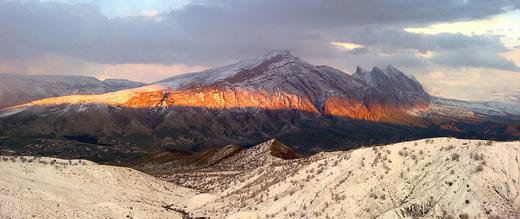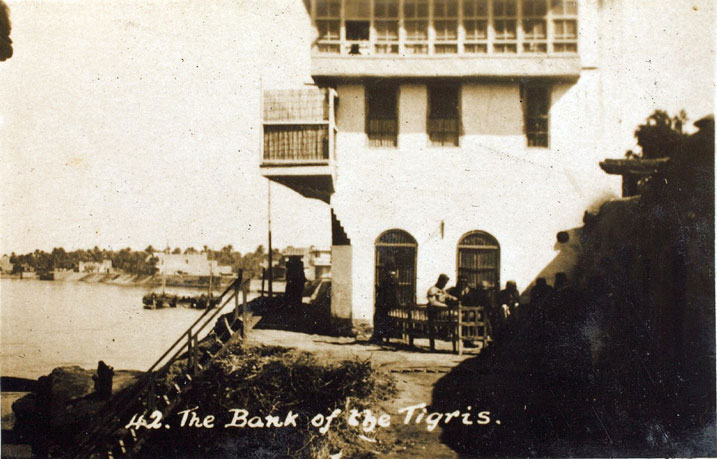The views expressed in our content reflect individual perspectives and do not represent the authoritative views of the Baha'i Faith.
Baghdad in the mid-nineteenth century was a city long past its heyday. Once the capital of the far-flung Abbasid dynasty (A.D. 750–1258), it boasted at its height a population of more than one million souls and was a mighty center of government, industry, art, and science. So great was its fame that the very name, particularly in the West, had come to symbolize the zenith of Islamic civilization. After a period of slow decline the city suffered sudden, severe reversal at the hands of Mongol invaders in the thirteenth and fifteenth centuries. By the time of Baha’u’llah’s arrival, it had become a provincial capital of the Ottoman Empire, with a total population of some sixty thousand. There was little evidence at that point to suggest its former glories.
Baha’u’llah and his family arrived there in April 1853 after three months of travel in the dead of winter over the desolate and icy mountains of western Persia.
Although the journey, coming on the heels of a horrible imprisonment, must surely have been exhausting, Baha’u’llah wasted no time in doing what he could to revive the spirits of the Bab’s remaining followers.
The community of Babis, grief-stricken and confused, had lost not only their beloved leader, the Bab, but also thousands of their fellow-believers, including nearly all of the most prominent disciples. Many of the faithful turned naturally to Baha’u’llah for inspiration and guidance, since he was virtually the only leading Babi to have survived the brutal persecutions. Baha’u’llah, realizing that the community stood in grave peril of disintegration, assumed the task of reviving its demoralized remnants with characteristic ability and determination. This he did without revealing his own station.
Over time the signs of Baha’u’llah’s spiritual eminence, leadership, and high integrity would become evident to all, provoking joy and wonder in the hearts of countless admirers and restoring hope to the beleaguered Babis. His home would become a center of the city, where all who came, high and low alike, enjoyed his wisdom and basked in the warmth of his loving hospitality. Eventually multitudes testified to the impact of his presence in their midst.
But initially there was resistance from some quarters. That so many of the Babis rallied around Baha’u’llah provoked intense envy in a few, who began campaigning for leadership. Some combined forces to undermine Baha’u’llah’s efforts to unify the believers. Still others, well-meaning but confused and disoriented in the aftermath of the persecutions, went so far as to claim that they were the Promised One foretold by the Bab. These claims and schemes led to disruptive behavior and potentially serious dissension within the ranks of the believers.
Baha’u’llah’s reaction was not to assert his own leadership aggressively. Rather, to everyone’s complete surprise, he departed the city. Without notifying anyone, he left in April 1854 in the company of a single servant, making his way to the mountains of Kurdistan some distance to the north. He took up residence in a cave in mountains near the town of Sulaymaniyyah, where he spent his time in prayer and meditation. Even his relatives did not know where he had gone.
This two-year period, reminiscent of the withdrawal of Moses to Sinai, of Jesus into the wilderness, and of Muhammad’s periodic retreats to the hills outside of Mecca, was spent contemplating the mission with which God had entrusted him.
That remote corner of Kurdistan offered no physical comforts of any kind. Yet, even in that desolate region, he soon attracted attention. A few people in the area took notice of his extraordinary wisdom and knowledge as well as his kindness and his captivating personality. Gradually he attracted a large circle of admirers, including some men of learning. Concealing his real identity, he was thought by some to be a Muslim mystic, or dervish. Before long his reputation for spiritual insight began to spread beyond the confines of Kurdistan. Eventually his friends and family, who had no idea where he had gone, heard tales of a remarkable saint in the district of Sulaymaniyyah. From these reports they concluded that this personage must be none other than Baha’u’llah and sent emissaries to plead for his return. Baha’u’llah considered this development a sign from God that he should resume his mission in Baghdad.
“Surrendering Our will to His,” he wrote, “We submitted to His injunction.” – God Passes By, p. 126.


















Comments
Sign in or create an account
Continue with Facebookor